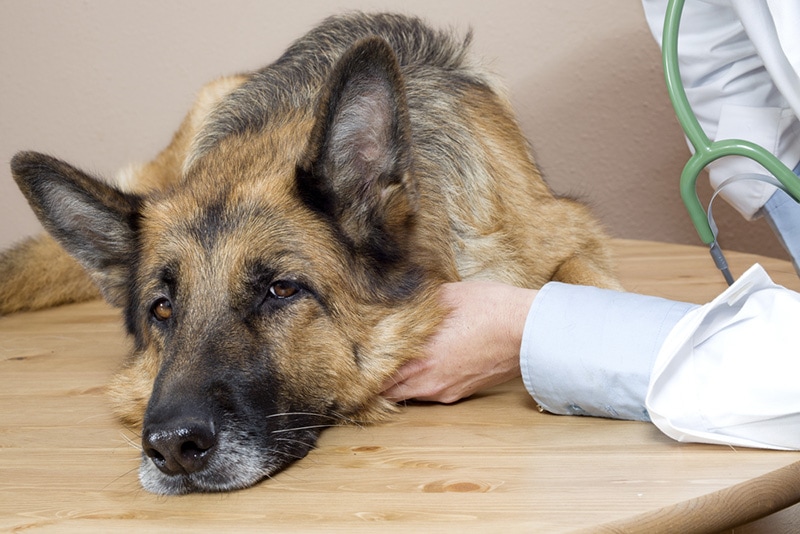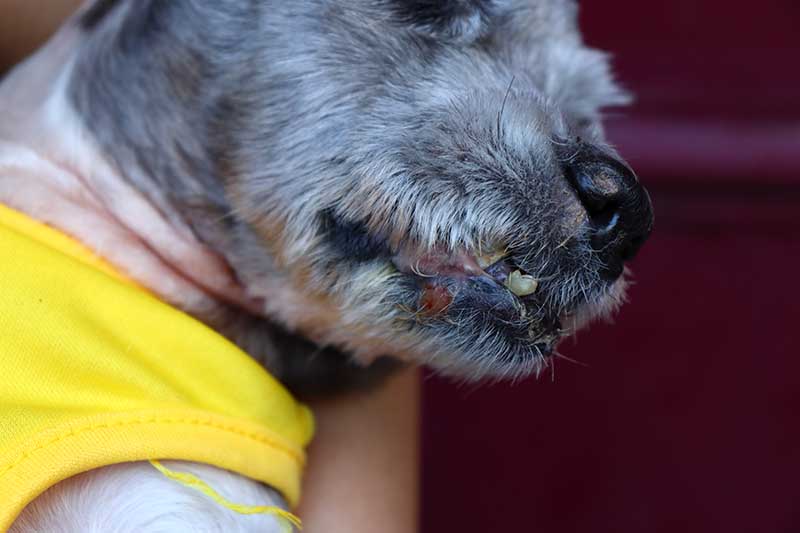
Charcoal is not a normal food for dogs to eat. However, if you’re using it to cook meat, dogs might discover a piece that falls from the grill. It isn’t odd for dogs to accidentally consume some charcoal during BBQ season out of curiosity.
Sadly, charcoal can cause a range of adverse reactions in dogs. They cannot digest it properly, and charcoal often contains a range of chemicals—some of which can be toxic. Therefore, you should keep an eye on your dog whenever charcoal is available and do not allow them to eat it.
Luckily, a small amount of charcoal won’t harm most dogs. However, some dogs may consume so much that a blockage occurs. Because dogs cannot break down charcoal, it will simply move through their intestinal system undigested. Most dogs can pass it fine if a small amount of charcoal is consumed. Dogs that eat a lot of charcoal may end up with too much for their system to pass, creating a blockage. Blockages are serious and require veterinary attention. However, they aren’t the only potential adverse reaction that may develop after your dog eats charcoal. Let’s take a look at some things to look out for.
Potential Adverse Reactions to Charcoal
Intestinal Blockages
If your dog consumes too much charcoal, it can block its intestines. When this occurs, veterinary attention is required. Some blockages can pass through by themselves, but those that don’t are potentially deadly. Your vet will need to remove the obstruction through surgery in most cases. Otherwise, the obstruction can prevent your dog from eating or digesting any food and block off the blood supply. Necrosis can occur, which leads to sepsis and death.
Here are some clinical signs indicating your dog may have a blockage:

Toxic Materials
The charcoal you purchase isn’t always just charcoal. Often, it includes added chemicals such as sodium nitrate to make it burn more easily. These chemicals can be toxic to your canine. These toxins can kick in rather quickly and require veterinary care. Therefore, if you notice any signs of toxicity, you should visit the vet right away.
These signs can vary, depending on the toxin. However, if you notice any strange behaviors, brown gums, fast heart rate, weakness, increased breathing, or digestive upset, you should call your vet immediately.
When your dog consumes charcoal, we recommend looking at the bag for a complete list of contents. If there is anything besides charcoal listed, be sure to write it down. Next, call your vet or the pet poison control hotline for information on what to do next. Depending on the toxin and amount consumed, you may or may not need to take your dog to the vet.

Burns
Hot charcoal can burn a dog’s mouth, or esophagus causing varying amounts of damage. Burns can cause open wounds in the mouth leading to the potential for secondary infections. Practically all dogs will need antibiotics to prevent infections when the mouth is moderately damaged. They will also need pain relief and veterinary monitoring.
Furthermore, your dog may be unable to eat normally, depending on the severity of the burns. Your vet may recommend an alternative way of feeding or hospitalization.
Treatment and prognosis largely depend on the burns’ severity and how fast treatment is received. Dogs that don’t get treatment and develop infections will have a worse prognosis.

What Should I Do If My Dog Ate Charcoal?
If your dog consumes charcoal, you should remove them immediately from the charcoal. You don’t want them eating more, as this can lead to a toxic buildup of chemicals and intestinal blockages. If you know your dog is a fan of charcoal, keep the dog away from the grill whenever you’re using charcoal..
Try to figure out how much charcoal your dog consumed next. You should also check the bag for information on other additives. Write down any information you see from a quick look over the bag and the remaining charcoal pile. If you contact your vet or pet poison control, you’ll need this information.
However, don’t spend too long trying to gather information. If you have no idea how much your dog ate, your vet can still provide treatment based on your dog’s signs. Don’t put off treatment just because you feel like you don’t have enough information.
Be sure to give your dog plenty of water. This will help wash your dog’s mouth, soothe burns, and support the kidneys. Most toxins are filtered through the kidneys or liver, which require lots of water to do their job correctly.
Next, call your vet or the pet poison control hotline. The pet poison control hotline is not free, but it’s a good option to have available. If your vet doesn’t recommend bringing the dog in immediately, stay on the lookout for any potentially negative signs. These include vomiting, loss of appetite, difficulty breathing or swallowing, or other signs of distress. When in doubt, we recommend getting your pet looked at by a vet.
Summary
Charcoal is not okay for dogs to eat. However, plain charcoal is not toxic, either. Still, consuming too much charcoal can cause an obstruction, which requires veterinary attention. Many charcoal brands also include added chemicals, some of which may be toxic. For this reason, we highly recommend giving your vet a call if your dog consumes any charcoal.
Always take your dog to the vet for burns to the mouth and other distressing signs.
You may also want to read:
- My Dog Ate an Ink Pen! Here’s What to Do (Vet Answer)
- What Do I Do If My Dog Swallowed Toothpaste? Vet Approved Advice
Featured Image Credit: Hans, Pixabay








